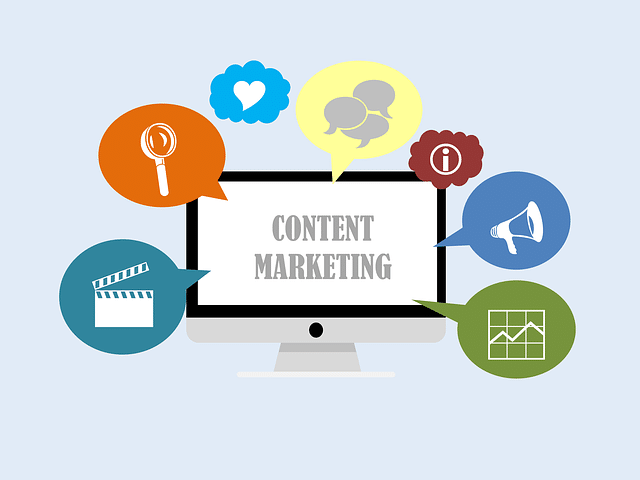What Makes a Successful Content Marketing Campaign?
February 3, 2023
There’s never been a more exciting time to be a digital marketer. The contemporary media environment offers almost limitless opportunities to reach and engage consumers with your message.
At the same time, as the pace of change continues to accelerate, the digital marketing landscape grows increasingly complex. Media, advertising, and marketing are in continual flux. Consumers’ behavior and media consumption habits evolve constantly.
For marketers, the challenge of delivering engaging content that inspires consumer action is greater than ever.
That’s why, whether you have a simple website or a thriving online empire, content marketing is central to virtually every marketing campaign.
What is content marketing?
Content marketing is essentially the practice of publishing written and visual material online for the purpose of generating leads and sales.
The Content Marketing Institute, a leading content marketing authority and resource, defines it as “a strategic marketing approach focused on creating and distributing valuable, relevant, and consistent content to attract and retain a clearly defined audience — and, ultimately, to drive profitable customer action.”
Prior to the late ‘90s, when content marketing first began emerging as a marketing tactic, the traditional marketing model was “outbound”—proactively advertising to consumers to sell them a product via TV, radio, print, or billboards.
In contrast, content marketing is “inbound” marketing—creating and distributing online content that draws consumers to your website and product offerings.

Instead of pitching your product or service directly, content marketing establishes and maintains an ongoing interaction and dialogue with your leads, prospects, and customers.
An effective campaign meets your consumers at their preferred online destinations and establishes a compelling narrative.
It educates, informs, and entertains. It builds engagement, loyalty, and community.
A good campaign creates value by delivering relevant content at every stage of the buyer’s journey. Most important, it inspires consumer action—and drives sales.
Content marketing includes everything from social media, email, blog posts, and articles to video, podcasts, and infographics. Essentially, it involves every media type that consumers interact with.
Why do you need content marketing?
Content marketing is a critical component of any marketing campaign. In fact, it’s virtually impossible to be successful without it.
According to Hubspot, 82% of companies reported using content marketing in 2021, up from 70% in 2020. Semrush reported that in 2022, 54% of organizations spent up to 50% of their marketing budget on content marketing.
And NP Digital reports that in 2023, 83% of businesses are predicted to increase their content production budget to create content across multiple formats.
And as consumers spend increasing amounts of time online, reaching them with an effective content campaign is even more imperative.
What are the elements of a successful content marketing campaign?

A content marketing campaign is an investment of time and resources that, with strategic planning and execution, will pay off in sales and revenue.
Developing an effective campaign is a step-by-step process that must be tailored to your specific objectives. Here’s a framework you can use as an overview and guide to getting started.
Define your strategy.
What are your business objectives, and how do you expect your content to support those objectives?
Decide how you plan to attract and engage your target customers. As you research and plan, you’ll gain important insights that will drive the specifics of your campaign.
Establish your goals and objectives.
What are your priorities? Are you looking to drive traffic and generate leads? Do you want to grow your customer base, or increase revenue from your existing customers?
Do you want to increase your conversion rate? Do you want to strengthen your brand awareness? Do you want to develop your thought leadership?
These decisions will guide your choice of media.
Identify your target audience and buyer persona.
Who is your customer and how do you serve them?
What need does your product or service satisfy?
How does your target audience interact with various content types?
What are the stages of the buyer’s journey, and how can you move your buyer forward at each stage?
Do a competitive analysis.
Who are your key competitors? How large is their online presence? What types of content do they utilize? What kinds of campaigns do they have? How successful are they, and why?
What content strategies will help you compete most effectively?
Choose your content types.
Where do your target consumers spend time? How do they consume media? Where are the best places to reach them, and what do they respond best to?
Depending on your audience and objectives, you’ll want to consider some mix of the following:
- Social media
- Email campaigns
- Newsletters
- Articles/blog posts (SEO-optimized for best search performance/results)
- Public relations/press releases
- Infographics/visual marketing
- Video/YouTube
- Podcasts
- E-books
- Case studies and/or whitepapers
- Testimonials and reviews
- Influencer marketing (Instagram or Facebook partnerships, etc.)
- Paid ad content
Tell your story.
Your business or brand narrative is at the center of your content campaign.
What’s the story you want to tell your customer?
How does your product offering meet your customer’s specific need?
What distinguishes your brand? What action do you want to inspire prospects and customers to take?

Consider hiring a copywriter or writing agency to help you craft your message and develop content. Quality writing is the heartbeat of your campaign. Investing in professional content creation will ensure you deliver a consistent, compelling message. Without it, even the most perfectly orchestrated campaign won’t deliver results.
Schedule and manage your content.
Effective content management is critical. Without seamless execution and distribution, your content won’t get the results you need. Once you’ve determined your content types and begun creating content, you’ll need a system for scheduling and managing it.
A content management system is essentially a website you create and manage yourself, like WordPress, Squarespace, or Wix. You’re probably already using some version of this. These systems let you create and manage website content using minimal technical overhead. Most also offer some level of ecommerce capability.
A content calendar is a centralized planning tool for planning, organizing, and scheduling content. You can use a simple calendar format like Google, a spreadsheet format like Excel, or one of many available free templates. Trello’s Kanban-based system uses moveable cards.
Content management platforms like CoSchedule are more robust solutions that track every detail of planning, creation, and distribution. They’re generally appropriate for larger teams and more complex content management. Many, like Semrush and Optimizely, also track performance and measure results.
Measure results.
Tracking and measuring your content’s performance is crucial for determining ROI (return on investment).
Once you’ve set specific objectives, determine your KPIs (key performance indicators) and the metrics most relevant to your goals.
If lead generation is an objective, for example, you might measure click-through rate, number of downloads, and/or form responses. Tools like Google Analytics, SharedCount, and BuzzSumo can help analyze performance data and evaluate your content’s effectiveness. Many content management platforms provide this function.
Get started on your campaign!
An effective content marketing campaign requires careful planning and execution every step of the way.
With an understanding of content marketing fundamentals, you’re ready to do a deeper dive and begin charting your path to success.






























